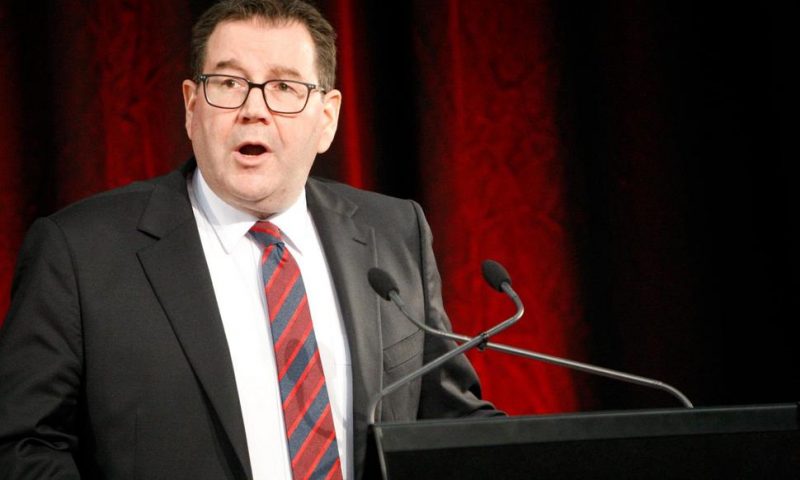New Zealand’s government says it will spend billions of dollars more on mental health services and combatting child poverty as part of a new approach to its finances.
WELLINGTON, New Zealand — New Zealand’s government announced Thursday it will spend billions of dollars more on mental health services and combatting child poverty as part of a new approach to its finances.
The liberal-led government unveiled the country’s first so-called well-being budget. It aims to measure social outcomes like health and the environment alongside traditional metrics such as economic growth.
The new approach has been lauded by some internationally but criticized by the conservative opposition as meaningless window-dressing.
The budget was the first since a gunman killed 51 people at two Christchurch mosques in March, and it included money for a gun buyback scheme after the government introduced new laws banning the types of semi-automatic weapons often used in mass shootings.
The budget also increased funding for the nation’s intelligence agencies, which didn’t identify the man accused of the slaughter as a potential threat.
Overall, new spending was up significantly on previous forecasts. But while government borrowing was forecast to rise, the net debt was expected to stay at about 20% of GDP as the size of the economy also expanded.
Finance Minister Grant Robertson said the increased spending was worth the extra debt and would help stimulate the economy as global economic growth slowed.
“The old way of doing things has left too many people behind,” Robertson said. “New Zealanders want us to measure our success, and invest on their behalf, in line with their values. The values of fairness, the protection of the environment, the strength of our communities.”
Under the budget, spending on mental health will increase by 1.9 billion New Zealand dollars ($1.2 billion) over the next four years. Part of that will include extra money for suicide prevention services as the country tries to tackle its high suicide rate.
“One death from suicide is one death too many, and the effects of each suicide on friends and family is devastating,” Robertson said.
Budget documents indicate an extra 81,000 people will be able to access free mental health and addiction services.
Robertson said at least 180,000 children were living in poverty and the government had set an ambitious 10-year target to cut that number in half.
The budget also included NZ$1 billion over four years to rebuild the country’s aging rail network and NZ$300 million over that time to help start-up companies grow larger. It also included extra money to help clean waterways and improve forestry.
Opposition Leader Simon Bridges said the budget had been “botched.” He said families wanted more money for food, gas and rent, but instead taxes were being spent on rail, defense and trees.
“The economy is sharply declining and the government is doing nothing to encourage growth,” Bridges said.
He said the budget included extra money for classrooms but not for teachers, who have been striking for better pay and conditions.
“This budget is style over substance,” he said. “It might have a glossy cover with nice pictures, but it’s hollow inside.”
Treasury forecasts indicate New Zealand’s economy will expand by about 3% next year before the rate slows to a 2.4% annual increase in 2022. The unemployment rate remains at just over 4% and is forecast to remain steady.
The budget includes NZ$150 million for the gun buyback scheme and NZ$50 million extra over four years for the intelligence agencies. Robertson said it would increase the funding for the buyback scheme if needed.
Some details of the budget were leaked earlier this week by the opposition National Party. Treasury at first said its systems were hacked and it had contacted police. It later said somebody had legally exploited a search tool on its website as it uploaded budget information to a clone site.

